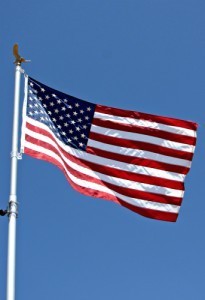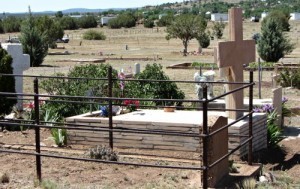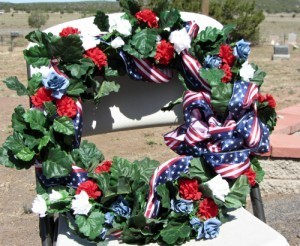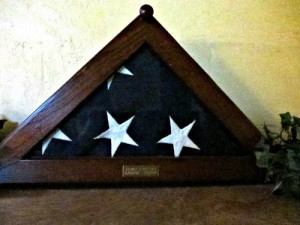Remembering
My dad was a dairy farmer whose workday began long before the sun came up and didn’t end until well after dark. He never took time off during the middle of the day, unless it was for something rather momentous. But he always made time for Memorial Day.
Dad wasn’t a big man—at last not in physical size. At his peak, he stood all of 5’6” tall and never weighed more than 145 pounds. But he loved his country and enlisted in the Army in February, 1941.
His 10-month enlistment was supposed to be up at the end of December that same year . . . but then came the attack on Pearl Harbor. In a letter to my grandfather, dated December 6, 1941, he talked about how much he looked forward to coming back to the farm in about three weeks’ time.
A letter written two days later begins, “I guess by now you’ve heard I won’t be coming home any time soon.” And he was right. He wouldn’t see the family farm again for nearly five years.
Growing up, I heard snippets of stories of his experiences in the Pacific, with him somehow managing to infuse those tales with his typical dry humor. It wasn’t until much later that I was able to put the pieces together and realize how much intense fighting he had seen, taking part in some major battles I’d read about in history books.
Dad made it back home. But he never forgot those comrades who fell on the battlefield. He knew the importance of remembering those who made the ultimate sacrifice to preserve the freedoms we enjoy today. And so every Memorial Day, we would make a stop at a local roadside flower stand to pick up armloads of late spring blooms.
Back at home, we would divide them into coffee cans my mother had saved and decorated with colored foil. Then came the trip to the cemetery, where we’d place the flowers with care on family gravesites and stand for a few moments, remembering those who had gone before.
It’s been a long time since I made one of those Memorial Day pilgrimages with my parents. Over the years, my husband and I have established traditions of our own, ones our children will remember.
This morning we joined a gathering of townspeople at our local cemetery to honor the men and women who gave their lives in service for our country. As I listened to the speakers and watched the honor guard firing off a 12-gun salute, I felt overwhelmed by the knowledge of what has been sacrificed on my behalf by people who never knew me but were willing to stand up for what they believed and left behind a legacy we all share in.
My thoughts turned to the members of my family who have been a part of this legacy—two great-grandfathers who fought (on opposite sides) in the Civil War; the grandfather who served in WWI; my father, who served during every day of WWII; my cousin who spent months in the jungles of Vietnam; my husband, who enlisted in the Army back when it was “uncool” to show patriotism; my son who is currently a Senior Airman in the U.S. Air Force.
The pride and gratitude I feel for them–and all the other men and women who have served or are currently serving in the U.S. military–is boundless.
One of this morning’s speakers read a quote from General George S. Patton, Jr: “It is foolish and wrong to mourn the men who died. Rather we should thank God that such men lived.”
And I do.







